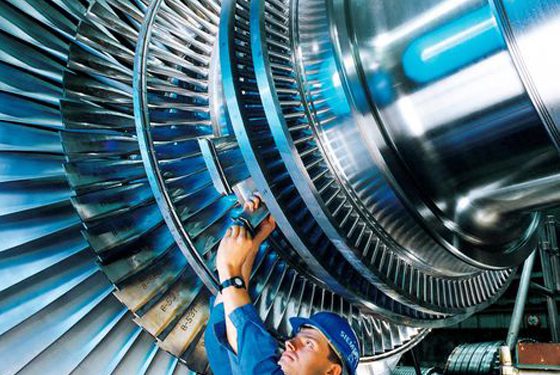Siemens is set to supply six F-class gas turbines, four steam turbines and several generators for a new power generating facility in Qatar, according to a top company official.
The orders are for a new combined-cycle power generating facility with an integrated seawater desalination plant, named Umm Al Houl.
The upcoming project is set to supply a total electricity output capacity of 2.5 gigawatts and up to 136 million imperial gallons (618 million liters) of drinking water per day.
Dietmar Siersdorfer, CEO, Siemens, Middle East and UAE told a round table meeting in Egypt’s Beni Suef province: “We have recently signed a service contract for the upcoming power plant in Qatar.
“Under the contract agreement we will supply six F-class gas turbines, four steam turbines and ten generators, according to country’s requirement,” The Peninsula reported.
Siersdorfer was celebrating a milestone at the Beni Suef power plant project in the country, as the first four H-class gas turbines arrived on site.
He pointed out the various features of the turbines: “H-class turbines are more reliable, reduces annual carbon emissions, and have achieved over 60 percent record breaking levels of efficiency.
“They are ideally suited to countries that are net gas importers. However, those who are self-reliant or have easy access to gas still opt for F-class turbines.”
He said that the scope and benefits of the smart-grid system has a great future as the market is growing rapidly.
The technology has the ability to feedback data on demand and consumption patterns from different areas in a well-balanced way so that the best suited power plant can be used to supply electricity at a given time keeping in view the peak load factor.
He highlighted that Siemens always look for inter-grid connections and “Qatar is a great example in this regard”.
Siersdorfer added: “We are providing Kahramaa (Qatar General Electricity and Water Corporation) a lot of grid-substations which are then supplying electricity from the power stations to customers which can be manufacturing facilities in industrial parks, residential housing complexes and other places where the peak load timings vary.
“The smart-grid supply system can ensure the efficient use of scarce resources and optimum utilization of generation capacities,” he added.
He noted that Siemens is committed to the Middle East market, including Qatar, to provide specific technologies as per requirements.
“The company is involved in doing projects within the projects and developing specialist technologies that are best suited for the local market conditions,” Siersdorfer added.
“For example we have also in Qatar an R&D center located at Qatar Science and Technology Park (QSTP) where we are developing technologies to be used in trams to adapt to the local conditions. This is being done in the country for Qatar and the greater region in the Gulf not for Germany or other countries in the world.”
The Peninsula
25 May








































































